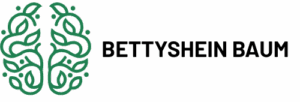Building habits can feel like trying to teach a cat to fetch—frustrating and often futile. Yet, the right habit-building books can turn that chaos into a symphony of productivity. These gems offer practical strategies and insights that not only inspire but also make the process enjoyable. Who knew transforming life could be as easy as flipping through pages?
From tackling procrastination to mastering self-discipline, these books serve as trusty sidekicks on the journey to personal growth. They’ll help anyone navigate the tricky waters of habit formation, ensuring that every step taken is one step closer to greatness. So grab a cup of coffee, settle in, and get ready to discover the secrets behind building habits that stick.
Table of Contents
ToggleOverview of Habit Building Books
Habit building books serve as essential tools for anyone looking to create positive changes in their lives. These resources offer a variety of techniques and insights that cater to different preferences and styles of learning. Readers find methods for enhancing motivation and consistency.
Numerous authors focus on specific frameworks, such as the habit loop, which consists of cue, routine, and reward. For instance, Charles Duhigg in The Power of Habit breaks down this process, making it easier for readers to grasp the mechanics of habits. Skillfully, he illustrates how understanding these components can lead to more effective habit formation.
Additionally, titles like James Clear’s Atomic Habits emphasize the value of tiny changes. Clear argues that focusing on small, incremental improvements can lead to remarkable results over time. This perspective resonates with those overwhelmed by lofty goals.
Other books, including Mindset by Carol S. Dweck, examine the psychological barriers to habit building. Dweck’s concept of a growth mindset highlights the importance of resilience and adaptability. Readers learn that cultivating a mindset conducive to growth fosters better habit formation.
Readers may also appreciate firsthand accounts in memoir-style habit building books, like The 5 AM Club by Robin Sharma. Sharma’s narrative encourages early rising as a vehicle for productivity and personal development. Stories like these inspire readers by illustrating the transformative power of consistent habits.
By exploring these various approaches, individuals can discover strategies that resonate most effectively with their unique situations. Habit building books thus provide both inspiration and practical guidance, empowering readers to take actionable steps toward lasting change.
Key Concepts in Habit Formation

Understanding key concepts in habit formation enhances the effectiveness of personal growth strategies. Two fundamental ideas—The Habit Loop and The Role of Motivation—play significant roles in building lasting habits.
The Habit Loop
Charles Duhigg’s Habit Loop framework outlines three critical components: cue, routine, and reward. The cue acts as a trigger, signaling the start of the behavior. Following this, the routine encompasses the actual behavior or action taken. Lastly, the reward delivers a sense of satisfaction or benefit, reinforcing the habit. Consistently applying this loop helps in identifying specific cues and understanding which rewards are most effective. With awareness of these components, individuals can modify existing habits or create new ones that align with their goals.
The Role of Motivation
Motivation serves as a driving force behind habit formation. It influences the desire to initiate and maintain new behaviors. Two types of motivation exist: intrinsic and extrinsic. Intrinsic motivation arises from personal satisfaction or a sense of achievement, while extrinsic motivation involves external rewards or recognition. Both types can effectively foster habit formation, but intrinsic motivation often leads to more sustainable changes. Setting clear goals boosts motivation and enhances commitment to the process. Recognizing personal values and aligning habits with those values further strengthens the motivation required for success in building consistent routines.
Top Habit Building Books
These habit-building books provide valuable insights and practical strategies for anyone seeking to transform their routines and achieve lasting change.
Book 1: “Atomic Habits” by James Clear
Clear’s Atomic Habits emphasizes the power of small, incremental changes. Readers learn that focusing on 1% improvements daily can lead to remarkable progress over time. The book also introduces the concept of habit stacking, where individuals pair new habits with existing routines, creating a seamless flow of actions. Specific examples illustrate how to overcome common hurdles, making it easier for anyone to implement these strategies. Clear encourages readers to establish systems rather than solely setting goals, which fosters a deeper commitment to habit formation.
Book 2: “The Power of Habit” by Charles Duhigg
Duhigg’s The Power of Habit delves into the science behind habits through the Habit Loop framework. This model consists of three elements: cue, routine, and reward. Understanding these components helps individuals identify triggers that initiate their behaviors and ways to modify them for better results. By weaving in real-life stories, Duhigg demonstrates the impact of habits on personal lives and organizations. Practical steps accompany each concept, empowering readers to tweak their routines effectively and gain control over their habits.
Book 3: “Tiny Habits” by BJ Fogg
Fogg’s Tiny Habits presents a straightforward approach to habit formation that starts small. The premise centers around making habits easy and achievable rather than overwhelming. Fogg emphasizes the importance of celebrating small victories, reinforcing positive behavior, and boosting motivation. By using the “B=MAP” formula, which stands for Behavior equals Motivation, Ability, and Prompt, readers gain tools for designing effective habits. Practical tips and engaging exercises guide individuals in selecting tiny changes that fit seamlessly into their daily lives, making habit formation feel effortless.
How to Choose the Right Habit Building Book
Selecting a habit-building book requires careful consideration of personal preferences and goals. Evaluate your existing habits and identify specific areas for improvement. Identify whether you respond better to practical strategies, inspirational stories, or psychological insights.
Review the books’ authors and their credentials. Notable figures like James Clear, Charles Duhigg, and Carol S. Dweck offer foundational knowledge and established frameworks. Exploring reviews and reader testimonials can also provide insights into which books resonate with individuals facing similar challenges.
Consider the book’s approach to habit formation. Frameworks like the Habit Loop in The Power of Habit allow readers to dissect their routines effectively. Alternatively, Atomic Habits emphasizes gradual changes, making it suitable for those who favor step-by-step progress.
Look for techniques that fit your learning style. For visual learners, books with charts or illustrations can enhance understanding. Readers interested in anecdotes might prefer memoir-style narratives like The 5 AM Club, which present habits in a relatable context.
Check the book’s length and structure. A concise book might suit individuals seeking quick actionable tips, while a more comprehensive text provides a thorough exploration of habit-building principles.
Assess your motivation and readiness for change. Books that emphasize intrinsic motivation can help foster commitment when aligned with personal values. Choose one that ignites passion and aligns closely with your goals.
Building lasting habits doesn’t have to feel overwhelming. With the right resources at hand individuals can simplify the process and make it more enjoyable. The habit-building books discussed provide actionable insights that cater to different learning styles and preferences.
By leveraging frameworks like the Habit Loop and adopting strategies from authors like James Clear and Charles Duhigg readers can create a personalized approach to habit formation. These tools empower individuals to take meaningful steps toward their goals.
Ultimately the journey of habit building is unique for everyone. Choosing the right book can ignite motivation and foster a commitment to positive change. Embracing these resources can lead to a more fulfilling and productive life.





